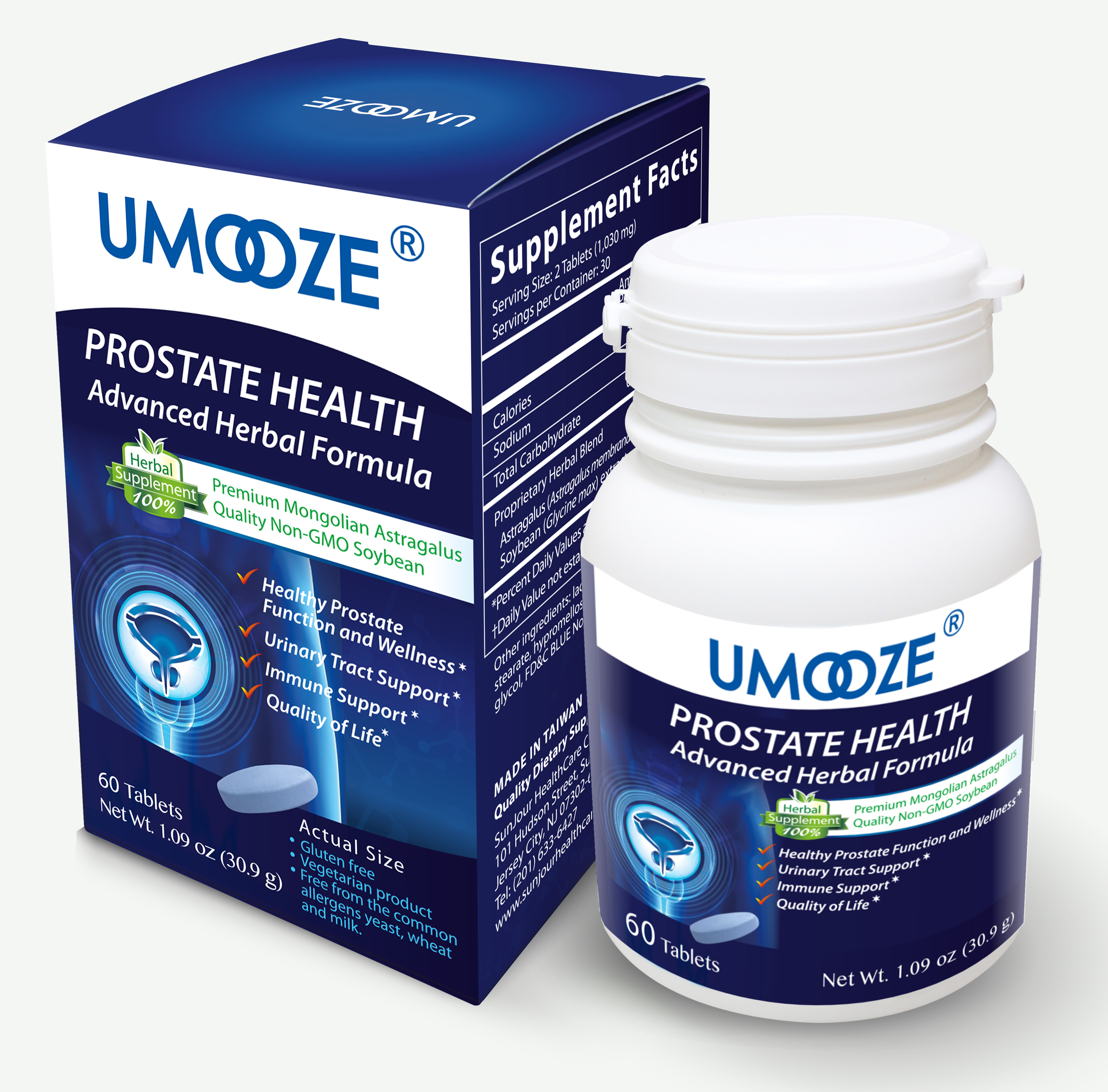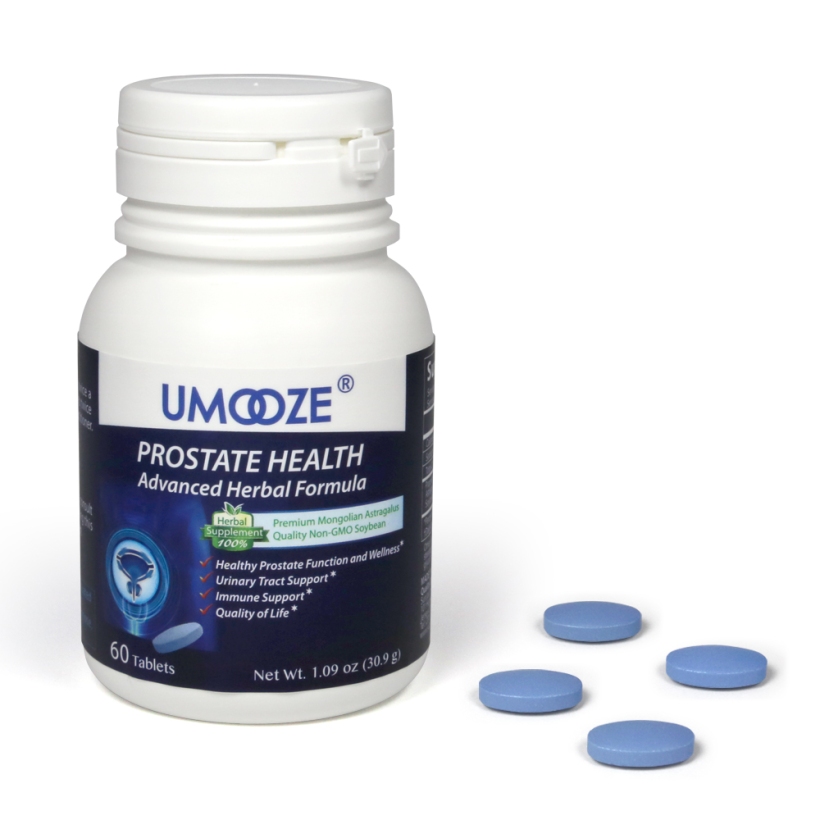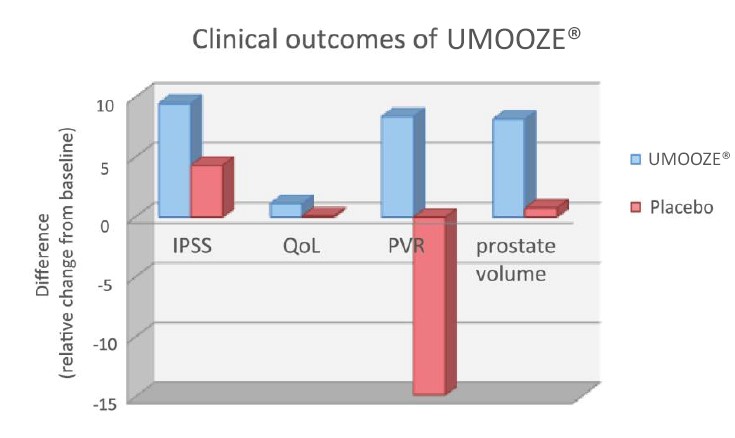Prostate Health

Maintaining prostate health is crucial for men, but is enough being done? If we look at the numbers, about 85% of men are likely to develop some type of prostate-related health issue before they reach 60. And yet, addressing prostate health can be a taboo topic. If ignored, this can take its toll on men's sex lives, given that enlarged prostates can lead to pain and infections. And let's not leave out the big elephant in the room: Prostate cancer is very common. The prostate is a walnut-sized gland under the bladder and in front of the rectum. The gland surrounds the tube that carries urine from the bladder. Soy has been found to be highly beneficial for prostate health thanks to the antioxidant power of the isoflavones in soy. On top of that, when taken alongside astragalus, it boosts the immune system.
Heart Health
Let's not forget our hearts! Research has found that the saponins in astragalus plants can help prevent fatty plaques from forming in the arteries. Less plaques means lower cholesterol levels, lower blood pressure and a happy heart. More superpowers of astragalus include stress relief, less breathlessness, less distress, the reduction of blood clot formations, and the reduction of salt and water retention. And for my readers who have suffered strokes, astragalus can help preserve the function of nerves and strengthen artery walls. If you have experienced chronic heart failure, astragalus can reduce the potential for frequent episodes.
Adrenal Health
Bad stress and adrenal health do not mix. Astragalus can save the day by stimulating the adrenal glands and dealing with adrenal stress. This can be especially helpful to cancer patients as the adrenal glands are suppressed during their treatments.
Cancer
In the 1970’s, research into this herb confirmed that it aided the body’s ability to fight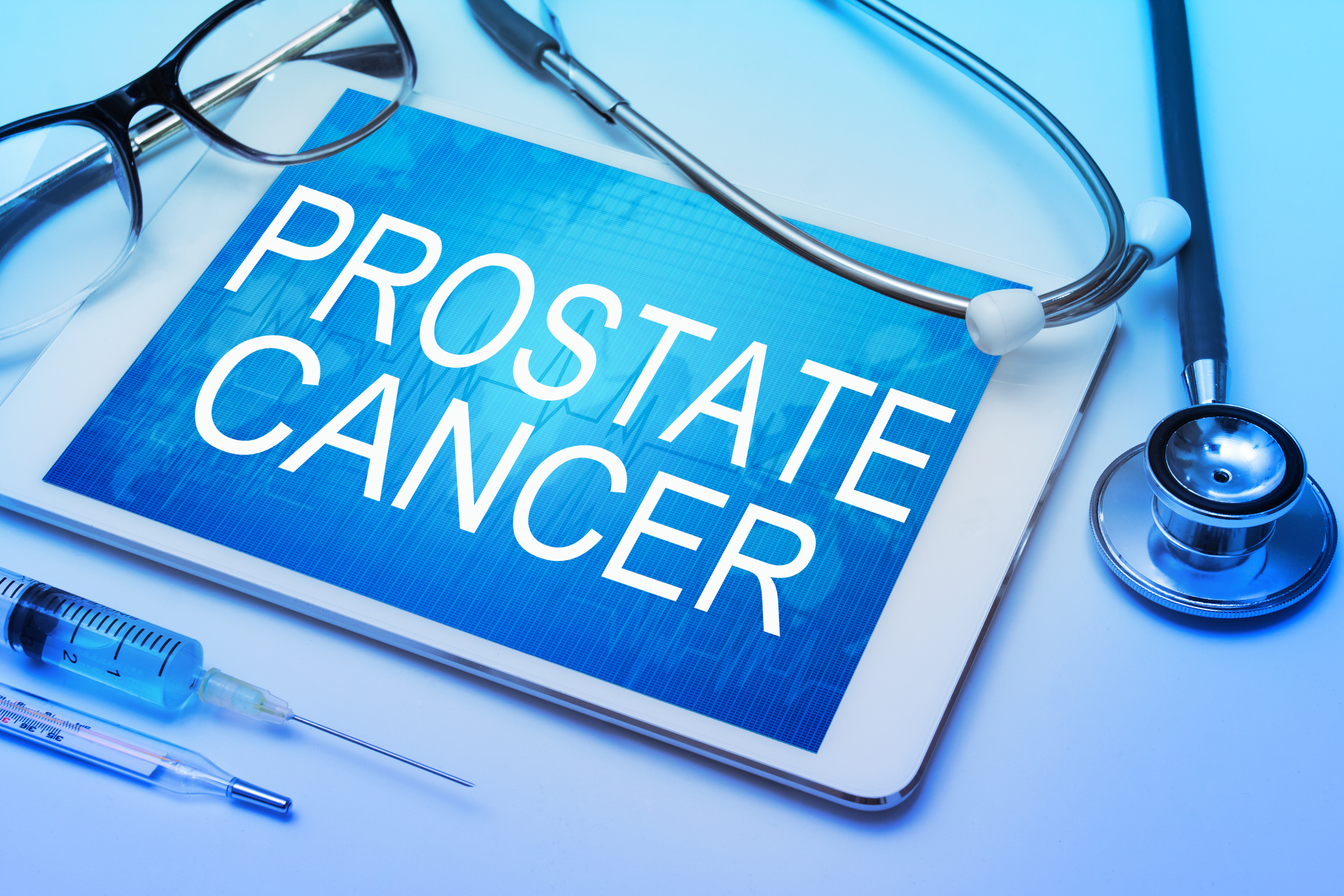 against inflammation, viruses, and bacteria, as well as protect liver functions. In a study, cancer patients receiving chemotherapy were given astragalus along with their treatment; it was found that bone marrow growth was promoted, meaning more white blood cells were produced to combat invading organisms. This naturally increased survival rates.
against inflammation, viruses, and bacteria, as well as protect liver functions. In a study, cancer patients receiving chemotherapy were given astragalus along with their treatment; it was found that bone marrow growth was promoted, meaning more white blood cells were produced to combat invading organisms. This naturally increased survival rates.
 against inflammation, viruses, and bacteria, as well as protect liver functions. In a study, cancer patients receiving chemotherapy were given astragalus along with their treatment; it was found that bone marrow growth was promoted, meaning more white blood cells were produced to combat invading organisms. This naturally increased survival rates.
against inflammation, viruses, and bacteria, as well as protect liver functions. In a study, cancer patients receiving chemotherapy were given astragalus along with their treatment; it was found that bone marrow growth was promoted, meaning more white blood cells were produced to combat invading organisms. This naturally increased survival rates.
The Aging Process
Beyond wrinkles, the aging process is cell-deep. Astragalus contains an enzyme (hTERT) that prevents the wear and tear of DNA strands. Protecting DNA slows the aging process, as proven in research that connects the length of DNA telomeres and age-related diseases including cardiovascular diseases. Another great thing about this herb is that it increases the rate of immune system replication known as macrophages.
Healing Wounds
The compounds found in Astragalus activate specific immune cells and make so that blood and chemicals do not flow into healing wounds and that they don't hemorrhage. It also reduces nitric oxide which in turn reduces inflammation. Ulcers can be treated with this herb, too.
Health Properties
Try not go get dizzy reading the components of Astragalus membranaceus: saponins, polysaccharides, amino acids, organic compounds, and mineral and trace elements such as zinc, magnesium, manganese, calcium, potassium, iron, copper, sodium, cobalt, chromium, molybdenum and more. The organic compounds within the astragalus root include choline, betaine, sitosterols, essential oils, aromatic compounds, linoleic acid, bitter compounds, aminobutyric acid and asparagine.
Side Effects
Although generally deemed safe, it’s important to always consider the potential of side effects. Astragalus should not be taken by anyone allergic to the Leguminosae family (pea). In addition, it could interfere with the effectiveness of beta-blockers, anticoagulants, phenobarbitals and diuretics. It may counteract the effectiveness of immune suppressing cyclophosphamide that is prescribed for those having organ transplants, and it could increase the effectiveness of some antiviral medications. It should not be used when you have a fever, and it could increase growth hormone levels.
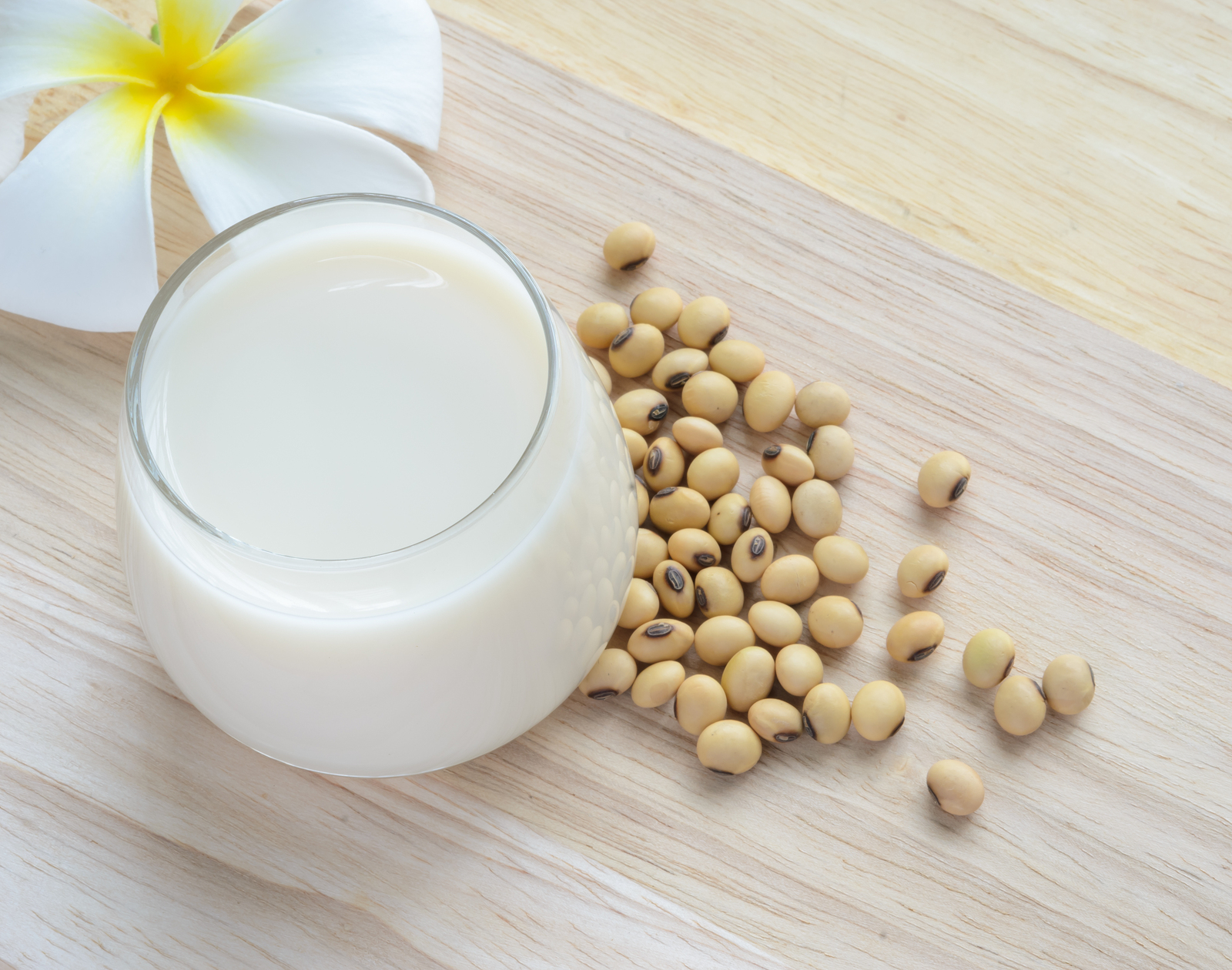
 Soy foods kill two birds with one stone: helping men met their protein needs without an excess of saturated fat attached to the protein. For those who are looking to exercise and gain muscle mass, levels of stress on the kidneys and exercise-induced oxidation and inflammation in the body are known to be reduced thanks to soy.
Soy foods kill two birds with one stone: helping men met their protein needs without an excess of saturated fat attached to the protein. For those who are looking to exercise and gain muscle mass, levels of stress on the kidneys and exercise-induced oxidation and inflammation in the body are known to be reduced thanks to soy.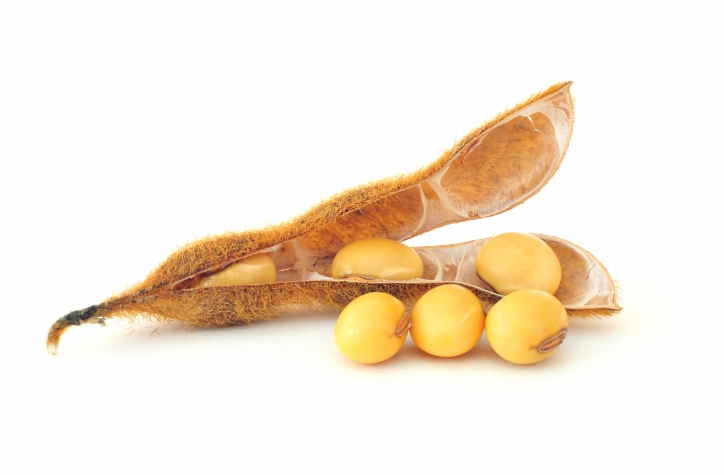 the symptoms of an enlarged prostate, including:
the symptoms of an enlarged prostate, including:
